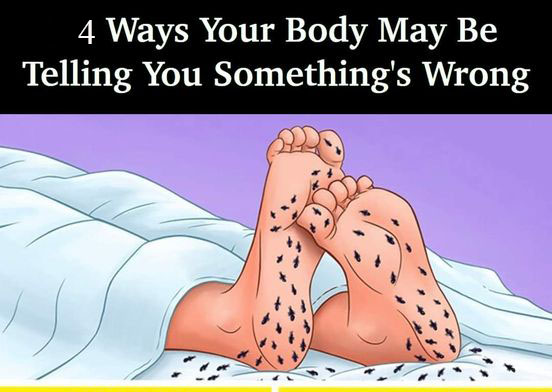ADVERTISEMENT
Your body continually sends you signals. If you pay attention, it will alert you when something is not quite right. Some of these indications are clear, such as a stuffy nose with a cold or a fever with the flu or an infection, while others of ill health are less obvious.
Others, however, are far more subtle. Signs of a chronic health condition may not always be obvious. While chronic concerns are typically less threatening than acute health problems, if not handled, they can lead to more significant consequences. Because of this, paying attention to them is critical.
Your body can communicate in a variety of subtle ways. While this list is neither exhaustive or intended to diagnose, the following are 4 indications of bad health and how to deal with them.
4 Subtle Signs of Poor Health
1. A Crawling or Achy Feeling in Your Legs
If you feel a crawling sensation in your legs or have an uncontrolled urge to move, you may have restless leg syndrome (RLS), which is a sign of poor health. It usually happens in the evening or at night, while you’re seated or lying down.
RLS is sometimes referred to as Willis-Ekborn Disease. The primary symptom is the desire to move the legs, and most persons find relief by stretching, jiggling their legs, pacing, or walking. Some of the sensations you could encounter with RLS include:
- Crawling
- Creeping
- Pulling
- Throbbing
- Aching
- Itching
- Electric
RLS, which often happens at night, might interfere with your sleep. This can have an impact on your overall quality of life.
A doctor can prescribe some medications for you, such as those that enhance dopamine levels in the brain or those that modify calcium channels. Certain pain relievers, muscle relaxants, and sleep aids may also help.
There are various home remedies that can help with RLS. A warm bath or massage might help alleviate symptoms, as can utilizing hot or cold compresses to reduce limb feelings. Some people find relief by taking magnesium supplements. Fatigue tends to exacerbate RLS, so developing a decent sleep schedule to ensure you receive enough rest will also help.
Moderate, regular exercise can also help ease symptoms, although overdoing it or working out late in the evening can exacerbate them. Cutting back on caffeine usage can also be beneficial.
